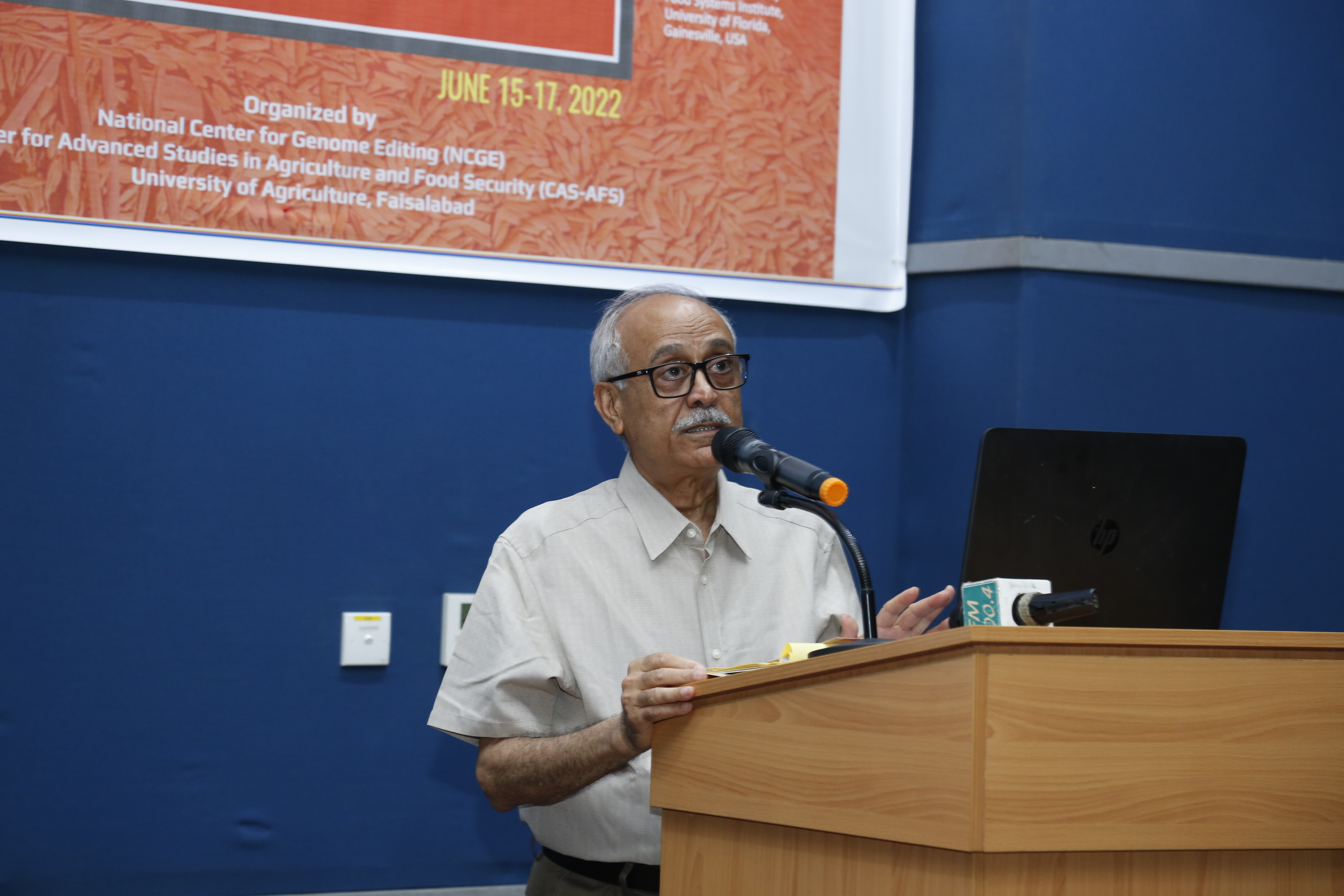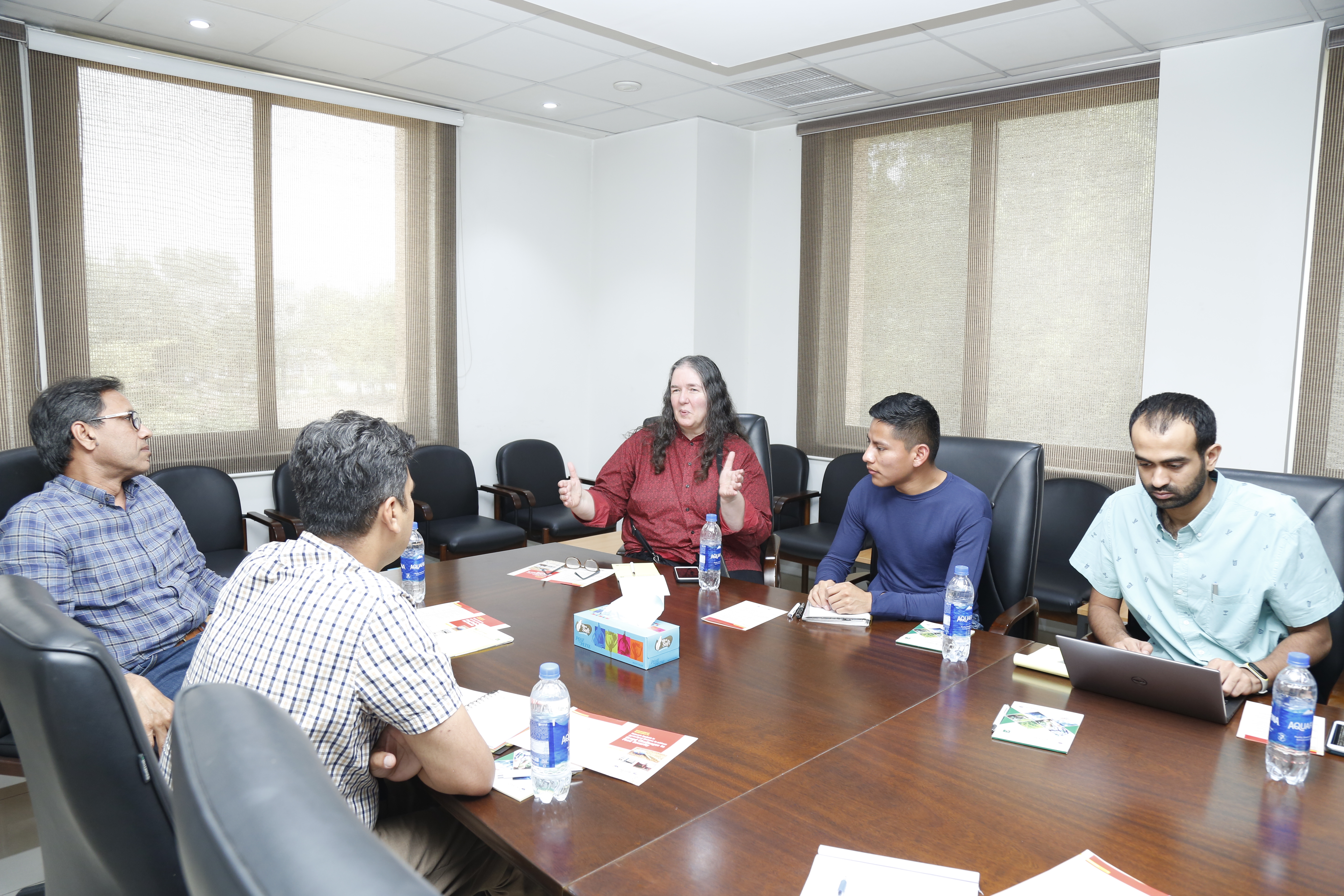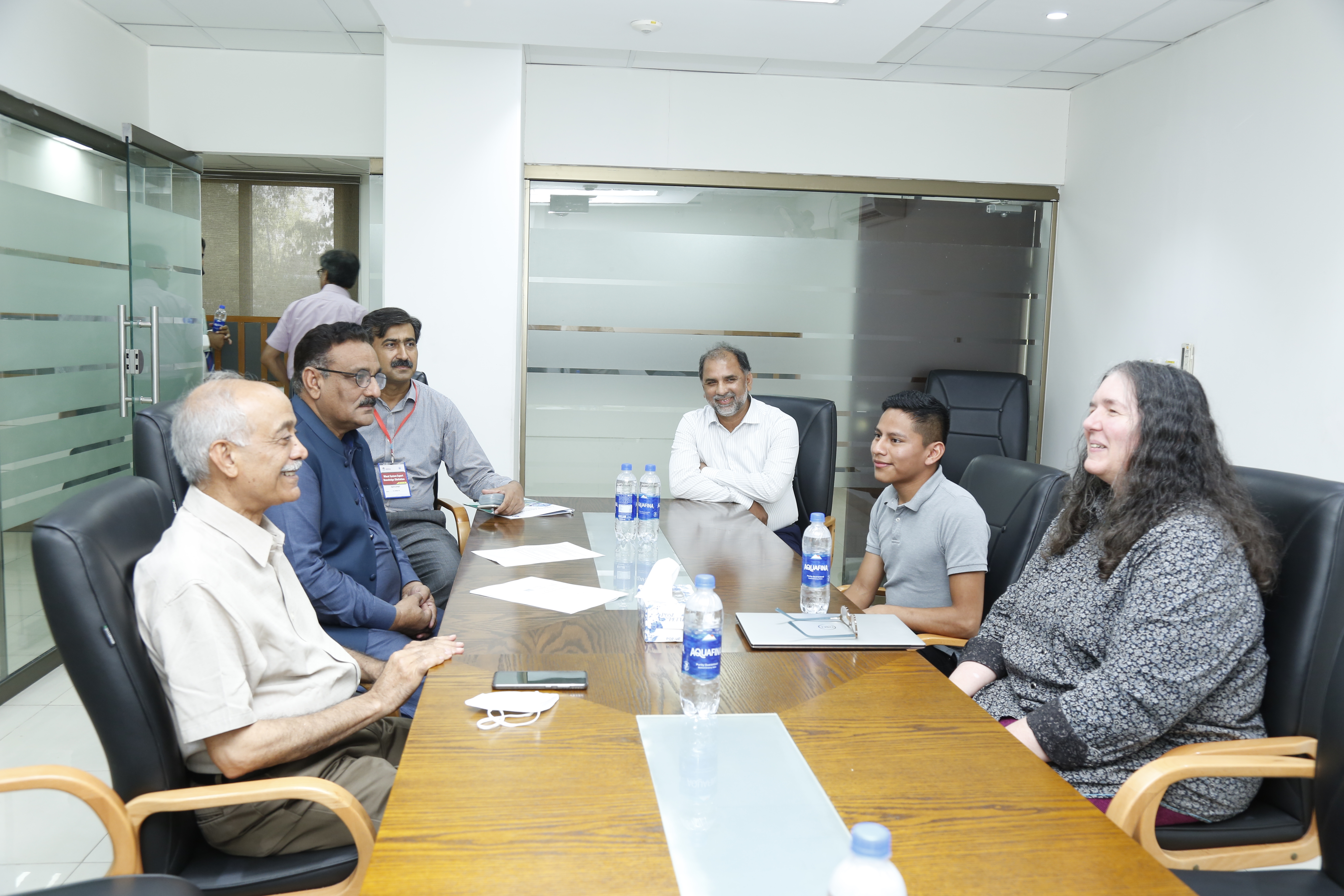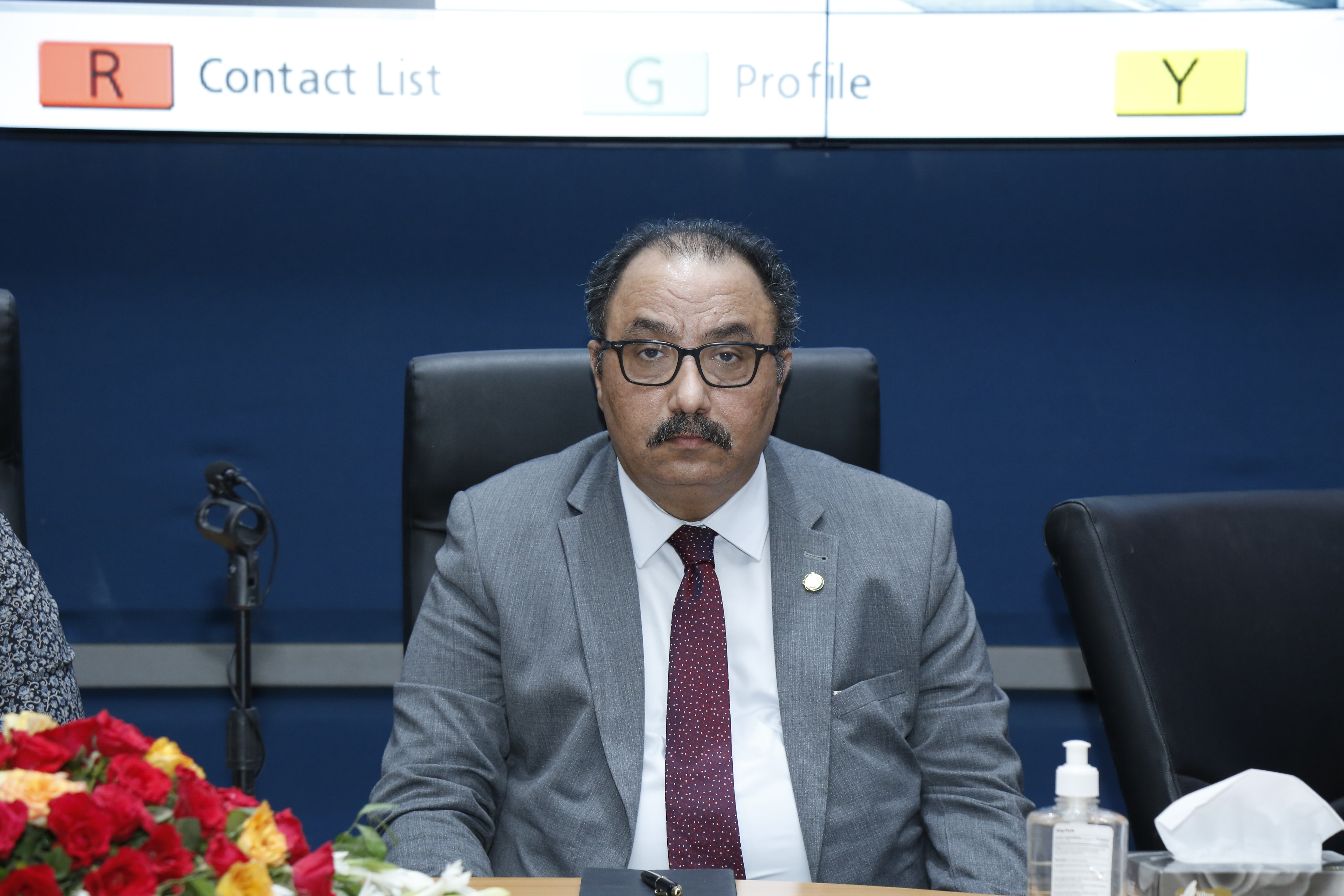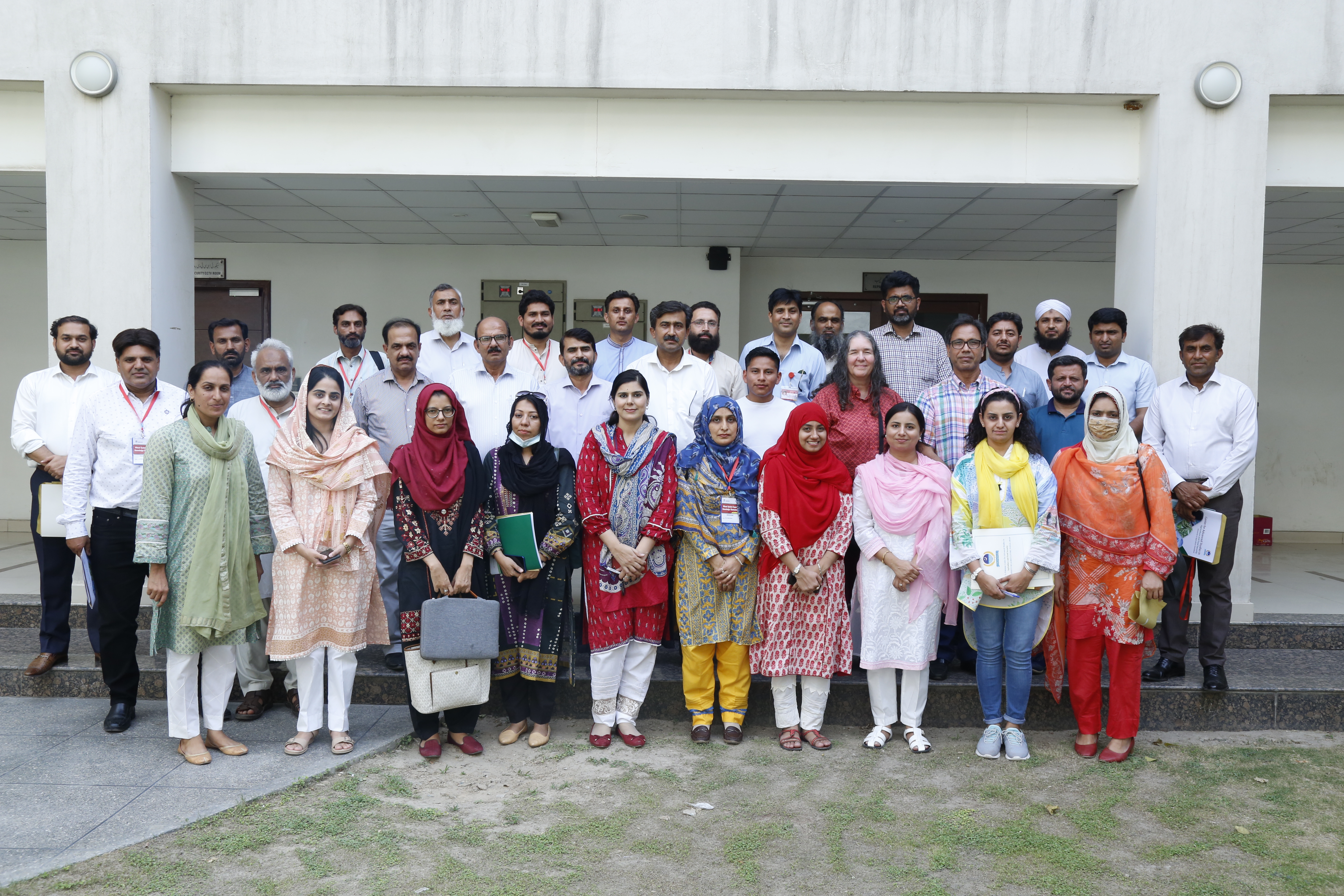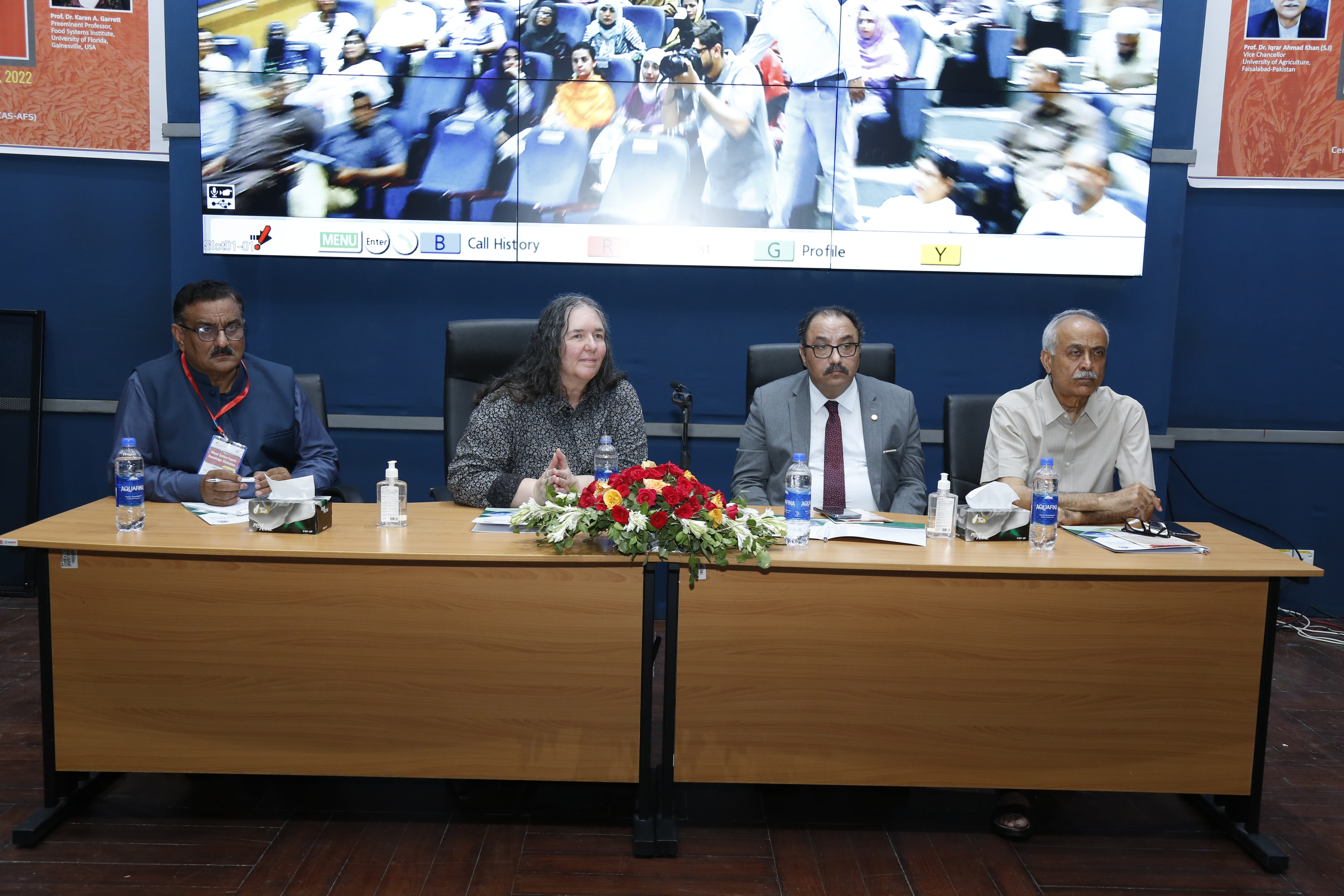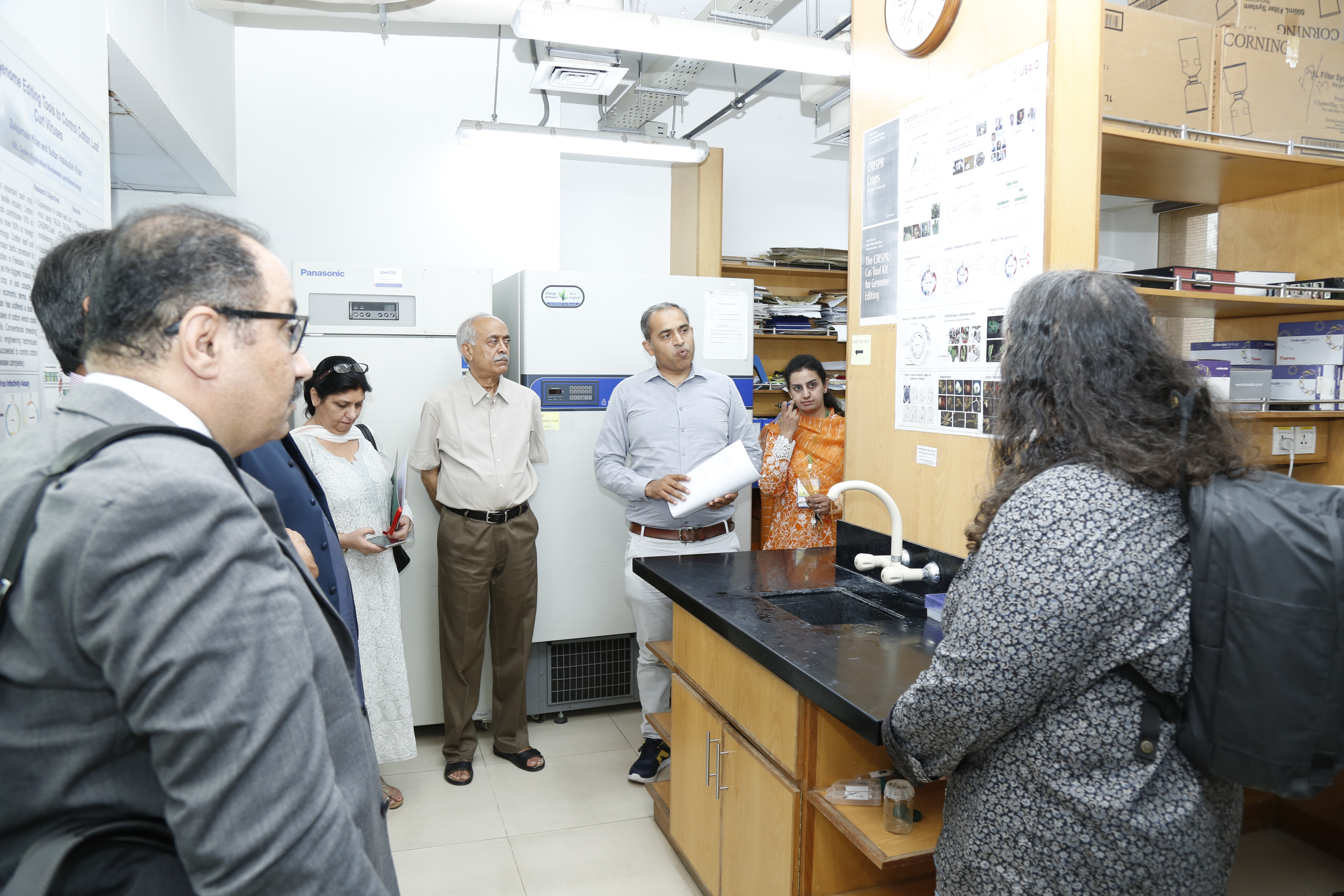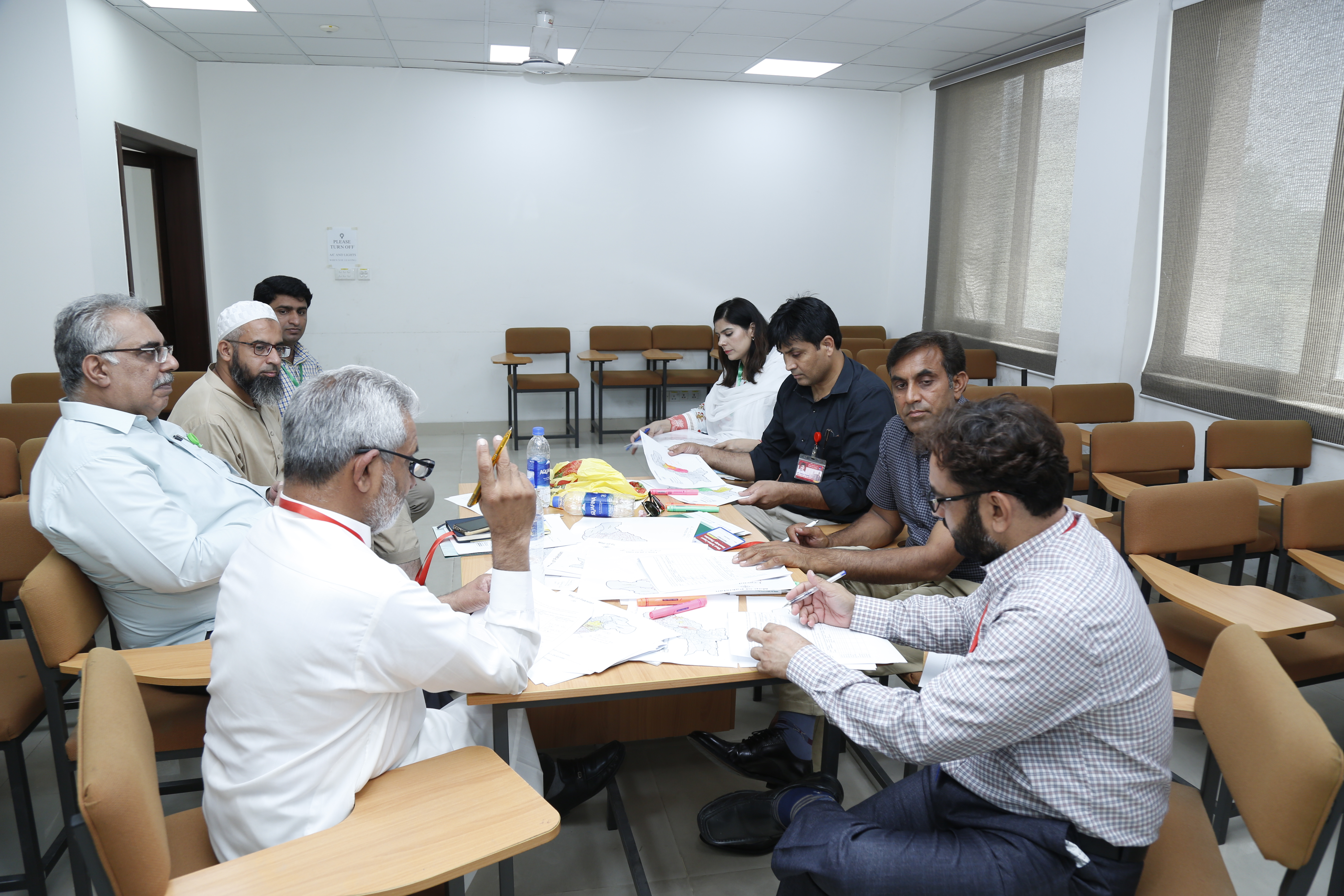Inaugural session of three-days international symposium on “Network Analysis in Agricultural Systems to address the Grand Challenges to Food Security” at CAS-AFS
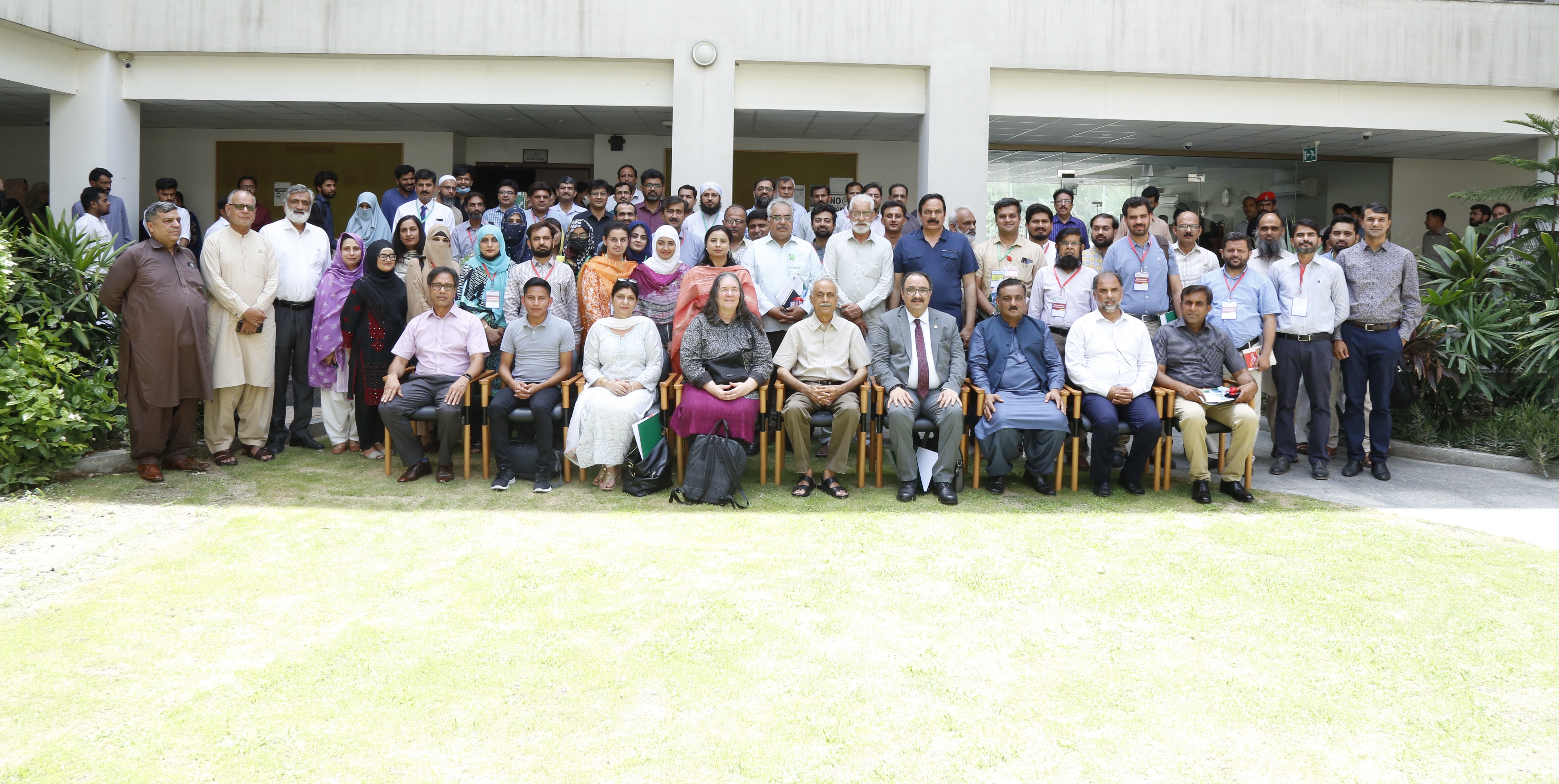
International symposium on “Network Analysis in Agricultural Systems to address the Grand Challenges to Food Security”.
The international symposium titled “Network Analysis in Agricultural Systems to address the Grand Challenges to Food Security” is arranged by Center for Advanced Studies in Agriculture and Food Security at CAS Auditorium. University of Agriculture Faisalabad Vice Chancellor Prof Dr Iqrar Ahmad Khan chairs the inaugural session while Dr. Karen A. Garrett from University of Florida USA, the Director Dr Ismaeel Abdul Hammed of OIC Islamic Organization for Food Security, the Director General Dr. Nawaz Maiken of Ayub Agriculture Research Institute, the Director Prof. Dr. Sultan Habib Ullah of CAS, Dr. Jalal Arif and other notables spoke on the occasion.
Experts at international symposium stressed upon the need to pace up efforts to ensure food security amid the situation of climate changes, new diseases, water scarcity and others issues that was playing havoc with the sector and in the years, the situation will worsen. Therefore, we have to develop resilient agriculture.
Chairing the inaugural session of international symposium titled “Network Analysis in Agricultural Systems to address the Grand Challenges to Food Security” arranged by Center for Advanced Studies in Agriculture and Food Security, University of Agriculture Faisalabad, the Vice Chancellor Prof. Dr. Iqrar Ahmad Khan said that out of four world largest famines, two were due to the plant diseases. The Irish Potato Famine began when a fungus-like organism spread rapidly throughout Ireland. The infestation ruined up crop. In the second famine, corn disease was a reason. He said that in the country, wheat is the main staple food and we have to protect it from the diseases and other factors. Otherwise, it would hurt the food security. He said that it was the matter of concern that the country was importing edible including wheat worth $10 billion. He added that diseases come from air and we have to get benefit from network analysis for better production and to promote the resilient agriculture
Dr. Karen A. Garrett from University of Florida said network analysis identifies geographic and temporal priorities for intervention; provides new tools to operationalize concepts such as sustainability and resilience; link plant pathology withy socio-economics to reach low-income farmers and increase agriculture development impacts. She said that integrated approach would help address the challenges to the agriculture security. She called for adaptation tools, diseases mitigation techniques and climate smart agriculture.
Dr. Ismaeel Abdul Hammed, the Director, OIC Islamic Organization for Food Security said that the in the era, the climate changes were the real challenge that was posing a serious threat to the food security. He said that world water reservoirs were shrinking that is a matter of grave concern. He said that we have to adopt the modern agriculture to ensure the food for the people. He said that we will cement ties of the different leading agricultural organizations in OIC with UAF to work together and learn from each other. He lauded the efforts of UAF for the sector.
Prof. Dr. Sultan Habib Ullah, the Director CAS said that In Iran, the wheat is affected by rust that came from Africa. He said that we have to promote latest methods including network analysis. Prof. Dr. Jalal Arif, the Principal Officer PRP said that the UAF is advocating blunt the wheat-maize flour that will also address the issue of malnutrition. He said that the session will provide an opportunity to learn from the eminent scholars and to reshape our thoughts on the issue of food security. He said that Integrated pest management and others modern technique be applied in the field for better production.
Dr. Nawaz Maiken, the Director General of Ayub Agriculture Research Institute and other notables also spoke. At closing ceremony, Dr. Karen A. Garrett and Prof. Dr. Sultan Habib Ullah distributed certificates among the participants.
